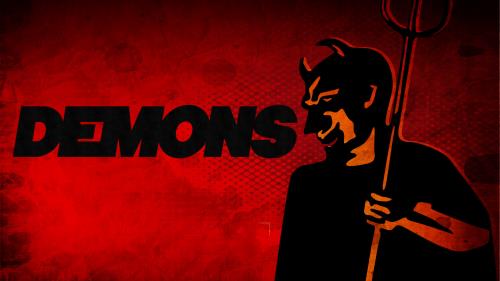-
Jesus Is Not Safe, But He Is Good Series
Contributed by Pat Damiani on Aug 6, 2019 (message contributor)
Summary: Only Jesus has the power to free me from my bondage to my sin
NOTE:
This is a manuscript, and not a transcript of this message. The actual presentation of the message differed from the manuscript through the leading of the Holy Spirit. Therefore, it is possible, and even likely that there is material in this manuscript that was not included in the live presentation and that there was additional material in the live presentation that is not included in this manuscript.
ENGAGE
In The Lion, the Witch and the Wardrobe there is a scene in which Mr. Beaver reveals to Susan that Aslan, the ruler of Narnia who represents Jesus, is a lion and not a man like she had assumed. Susan replies, “Ooh. I’d thought he was a man. Is he - quite safe? I shall feel rather nervous about meeting a lion…”. Mr. Beaver replied, “Safe?...Who said anything about safe? ’Course he isn’t safe. But He’s good. He’s the King, I tell you.”
TENSION
That is certainly an accurate description of Jesus isn’t it? In the gospels we are finding that a personal encounter with Jesus brings every person face to face with the decision to either reject Him and leave unchanged or to embrace Him fully and have his or her life radically transformed. Those who choose the second path find that it’s not always the easiest, but it does ultimately reveal that Jesus is good.
TRUTH
So far in this series we have seen people who made both choices. We’ve seen people like Simon the Pharisee who rejected Jesus and never got to experience the goodness of Jesus, But we’ve also seen people like the woman at the well and some of the people in her town and the sinful woman who anointed Jesus at the home of Simon the Pharisee who did embrace Jesus and who got to experience firsthand His goodness.
Today, we will read another account where we see people who make both of those choices. And like we often find with Jesus, the ones who embrace Jesus are often the ones who seem least likely to do so and the ones who reject Him are the ones who should know better.
The event that we’ll look at this morning is so important that Matthew, Mark and Luke all include it in their gospel accounts. We’re going to read Mark’s account, so go ahead and turn in your Bibles to Mark chapter 5.
[Read Mark 5:1-20]
There has been no shortage of suggestions for my sermon title this week. Gene Melzer suggested a couple – “Swine Lake” and “Deviled Ham”. The latter is certainly consistent with someone else who pointed out that if the demons had gone into a flock of chickens, we would be talking about deviled eggs rather than deviled ham.
Although it is not the main idea we’re going to pursue this morning, I think it’s important to point out that contrary to what many, even those in the church, think, Satan and demons are not just symbols, but actual living beings.
There are two extremes that we must avoid when it comes to demons. On one hand, there are those who deny their existence. At the other end of the spectrum are those who give way too much credit to Satan by blaming everything bad in their lives on demons. So if they have a weight problem, they try to address it by casting out the “demon of gluttony” rather than just cutting back on what they eat and getting some exercise. Or if they are struggling with their finances they blame it on a demonic attack when the truth is they just need to manage their money better. While it is true that Satan may take advantage of our fleshly weaknesses, those weaknesses are not caused by Satan or his demons.
The Bible is clear that we are all responsible for our own sin and that there is no demonic force that can take control of us and make us sin unless we allow it. While the man in this story is totally dominated by the demons in his life, this is an extraordinary case that is intended to show the extraordinary power of Jesus.
His book, The Screwtape Letters, is fiction, but in the preface, C.S. Lewis gives some good advice regarding this matter:
“There are two equal and opposite errors into which our race can fall about the devils. One is to disbelieve in their existence. The other is to believe, and to feel an excessive and unhealthy interest in them. They themselves are equally pleased by both errors, and hail a materialist or a magician with the same delight.”
I think it’s also important to note that nowhere in Scripture do we find examples of anyone rebuking Satan and his demons other than Jesus Himself. Nor do we find any commands for us to go around rebuking, commanding, or binding demons.

 Sermon Central
Sermon Central



